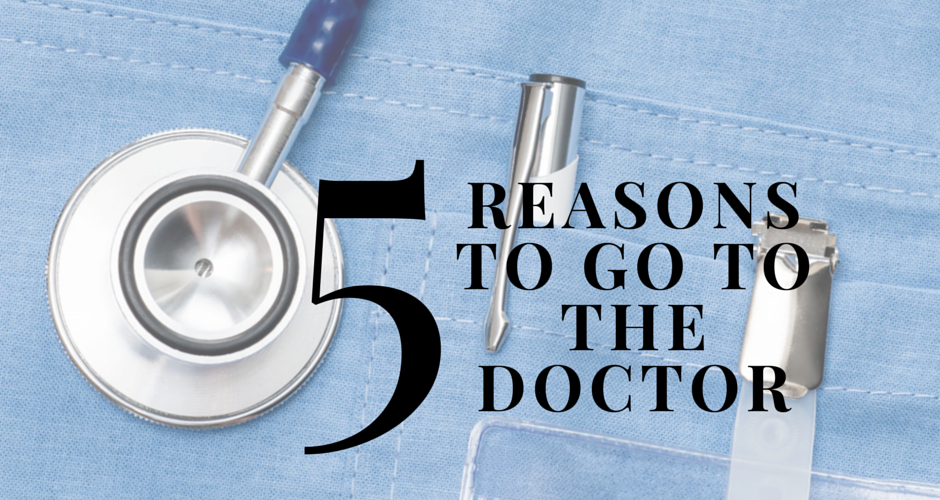We all have somebody in our lives who rarely goes to the doctor, claiming they are too busy or feel fine. Or maybe that person schedules appointments only to continually bump or reschedule them. I’ve seldom been that person and because of it, I’m thriving today.
Due to my storied cancer past, I scheduled an executive physical at The Princeton Longevity Center to assure that my health was in check. It wasn’t … but having the information from that visit helped fix it. Now a year later, I’m hoping to live a long life keeping cancer in check. I truly believe that whether one is healthy or not, going to the doctor and having a routine physical is incredibly important. I’m not suggesting we should all go to the doc every time a minor scrape appears. I just hope for all my family, friends and readers that they have someone, a doctor or naturopath, that keeps score on their health annually.

MY TOP 5 REASONS TO GO TO THE DOCTOR
Maintain Good Health:
We regularly do maintenance on our cars with oil changes and tire rotations every 5,000 miles. So, why don’t we think of our annual check-ups in the same mandatory way? An annual physical means screening for overall health issues* and providing vaccinations to prevent serious diseases.
Use Past Data as a Reference:
My doctors have access to years of my medical data because I’ve gone to my physical annually. Whether I’m sick or not, any changes in blood work or new aches can be referenced to earlier notes. It’s easier for my doc to diagnose or refer me to other specialists knowing my medical history. Also, many doctors now utilize electronic medical records, which are promptly available to network hospitals in an emergency. This is incredibly important and wouldn’t be possible without regular doctor visits.
Know the Problem and Fix It:
I sometimes dread going to the doctor for fear of finding out information I don’t want to know. Then I stop this negative self-talk because it only hurts me. Not knowing there’s a problem also means I can’t fix it. Being armed with information about my health helps me find the right practitioners to treat the illness. Ignoring it can potentially lead to bigger problems down the road. Research shows that early detection is important for better prognosis of the disease and potential opportunity for cure.
Utilize Doctor’s Expertise:
Every time I visit a doctor, I interview them. I do the legwork beforehand, researching information on wellness techniques or healthy diets. Then I discuss with my doctors. Sometimes they provide thoughtful insights; other times they refer me to other practitioners or sources. In both cases, I benefit because I take the research I’ve gathered and confirm its credibility. For those not passionate about wellness, ask for a medical/natural expert’s thoughts on what the media is covering on health and exercise, foods, supplements and mindfulness practices.
Build the Relationship:
I’m not friends with my docs on Facebook or host them at my house for a BBQ, but I do have a nice relationship with them. This became incredibly helpful last year when I couldn’t get a PET scan for 10 days after an initial report noted a suspicious lesion. I then called my primary care doctor asking for help. Because she knew me, she took my call and helped expedite the PET scan.
While attending a routine doctor’s visit is a step in the right direction, *some insurance companies don’t cover various tests. Ask your doctor (or insurance company) what screens are not covered and why. Know that there are other options, like scheduling a comprehensive executive physical including some of the latest technologies (i.e CT Coronary Calcium scans to detect early stage heart disease.) I did it, as a 40th birthday gift to myself, and am clearly happy with the outcome, now a year later.
What would motivate you or a family member to visit the doctor regularly?
Sources: Mayoclinic.org, The Princeton Longevity Center, Cancer.org










